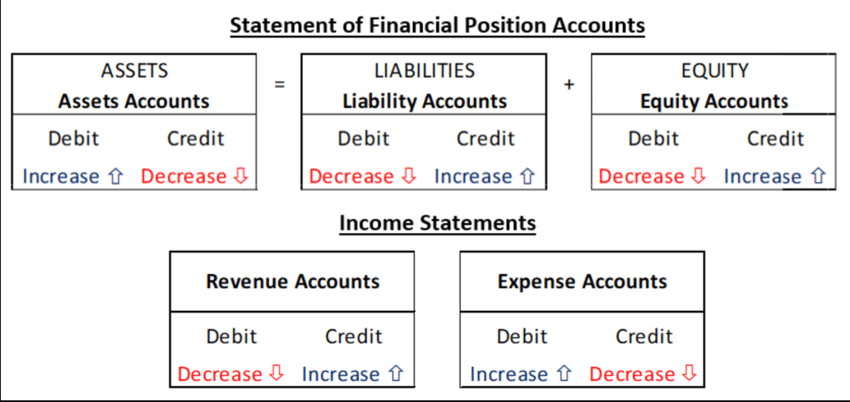Golden Rules of Debit and Credit
The Golden Rules of Debit and Credit: Keeping the Accounting Equation Balanced
The Golden Rules of Debit and Credit are the foundation of double-entry bookkeeping. They dictate how financial transactions are recorded to ensure the accounting equation (Assets = Liabilities + Owner's Equity) always stays balanced. Every transaction affects at least two accounts, with debits always equaling credits.
The Three Golden Rules
The rules are categorized by the type of account:
-
Real Accounts (Assets):
- Debit: Increase in assets (What comes in).
- Credit: Decrease in assets (What goes out).
Real accounts represent things the business owns, like cash, accounts receivable (money owed by customers), inventory, equipment, and buildings. If the business buys equipment (asset increases), it's a debit. If it sells equipment (asset decreases), it's a credit.
-
Nominal Accounts (Revenues, Expenses, Gains, Losses):
- Debit: Increase in expenses and losses.
- Credit: Increase in incomes and gains.
Nominal accounts track the business's performance. Paying rent (expense increases) is a debit. Earning revenue from sales (income increases) is a credit.
-
Personal Accounts (Liabilities and Owner's Equity):
- Debit: Decrease in liabilities and owner's equity.
- Credit: Increase in liabilities and owner's equity.
Personal accounts track what the business owes (liabilities) and the owner's stake (equity). Taking out a loan (liability increases) is a credit. The owner investing more money (equity increases) is also a credit.
Mnemonic to Remember
A simple way to remember these rules is:
- Real: Debit what comes in, Credit what goes out.
- Nominal: Debit all expenses and losses, Credit all incomes and gains.
- Personal: Debit the receiver, Credit the giver.

How it Works in Practice
Every transaction is recorded with equal debits and credits. This ensures the accounting equation remains balanced.
Example: The business buys office supplies for cash.
- Office Supplies (Real Account - Asset): Increases, so it's a debit.
- Cash (Real Account - Asset): Decreases, so it's a credit.
The debits and credits are equal, keeping the equation balanced.
Why are these rules important?
These rules are essential for:
- Maintaining balance: They ensure the accounting equation always balances, which is fundamental to accurate financial reporting.
- Accurate records: They provide a structured way to record transactions, leading to reliable financial data.
- Informed decisions: Accurate financial data is crucial for making informed business decisions.

No Comments